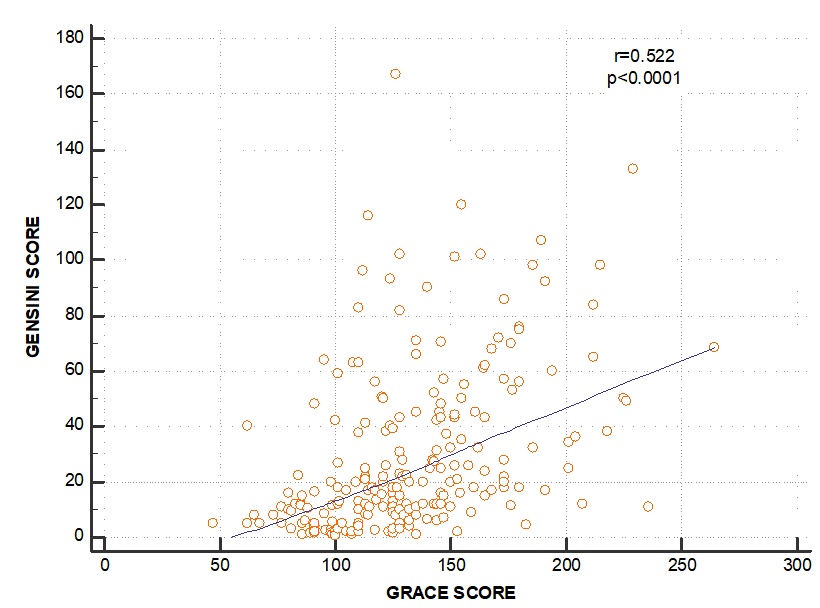The value of the Global Registry of Acute Coronary Events and Gensini scores in predicting long-term outcomes in Vietnamese patients with non-ST-elevation acute coronary syndrome
DOI:
https://doi.org/10.15419/bmrat.v8i2.662Keywords:
Acute coronary syndrome, GRACE score, Gensini, OutcomeAbstract
Introduction: Patients with non-ST-elevation acute coronary syndrome (NSTE-ACS) should undergo risk stratification as soon as possible after their presentation. Early risk satisfaction provides good prognosis for patients as well as better decision for reperfusion therapy. The aim of this study is to find a correlation between the Global Registry of Acute Coronary Events (GRACE) risk score and severity of coronay artery disease assessed by Gensini score score and compare the value of GRACE and Gensini scores in predicting the long-term outcomes in patients with NSTE-ACS.
Methods: A total of 220 patients with NSTE-ACS who underwent coronary angiography were enrolled in our study. The Gensini score was used to assess the severity of coronary artery disease. According to the GRACE score, the patients were grouped into low, intermediate and high groups. After 30 months of follow-up, 20 patients died.
Results: The mean Gensini scores were 11.8 ± 11.5, 27.4 ± 30.9, and 42.9 ± 29.7 in the low, intermediate and high-risk groups, respectively. The GRACE scores and Gensini score had a moderate positive correlation (rho = 0.522, p < 0.001). The survival rates showed a less rapid deterioration from the low to high GRACE groups (P = 0.013) than when classified according to their Gensini tertiles (P = 0.02). Area under the ROC curve was statistically significant for both scores, but area of the GRACE risk score (0.71; 95% Cl = 0.60 - 0.82) was higher than that the Gensini risk score (0.66; 95% Cl = 0.53 – 0.80).
Conclusion: Our study revealed that the Gensini score had a positive and significant relationship with the GRACE score in patients with NSTE-ACS. The GRACE score had a more value in predicting long-term outcomes in patients with NSTE-ACS.

Downloads
Published
Issue
Section
License
Copyright The Author(s) 2017. This article is published with open access by BioMedPress. This article is distributed under the terms of the Creative Commons Attribution License (CC-BY 4.0) which permits any use, distribution, and reproduction in any medium, provided the original author(s) and the source are credited.
